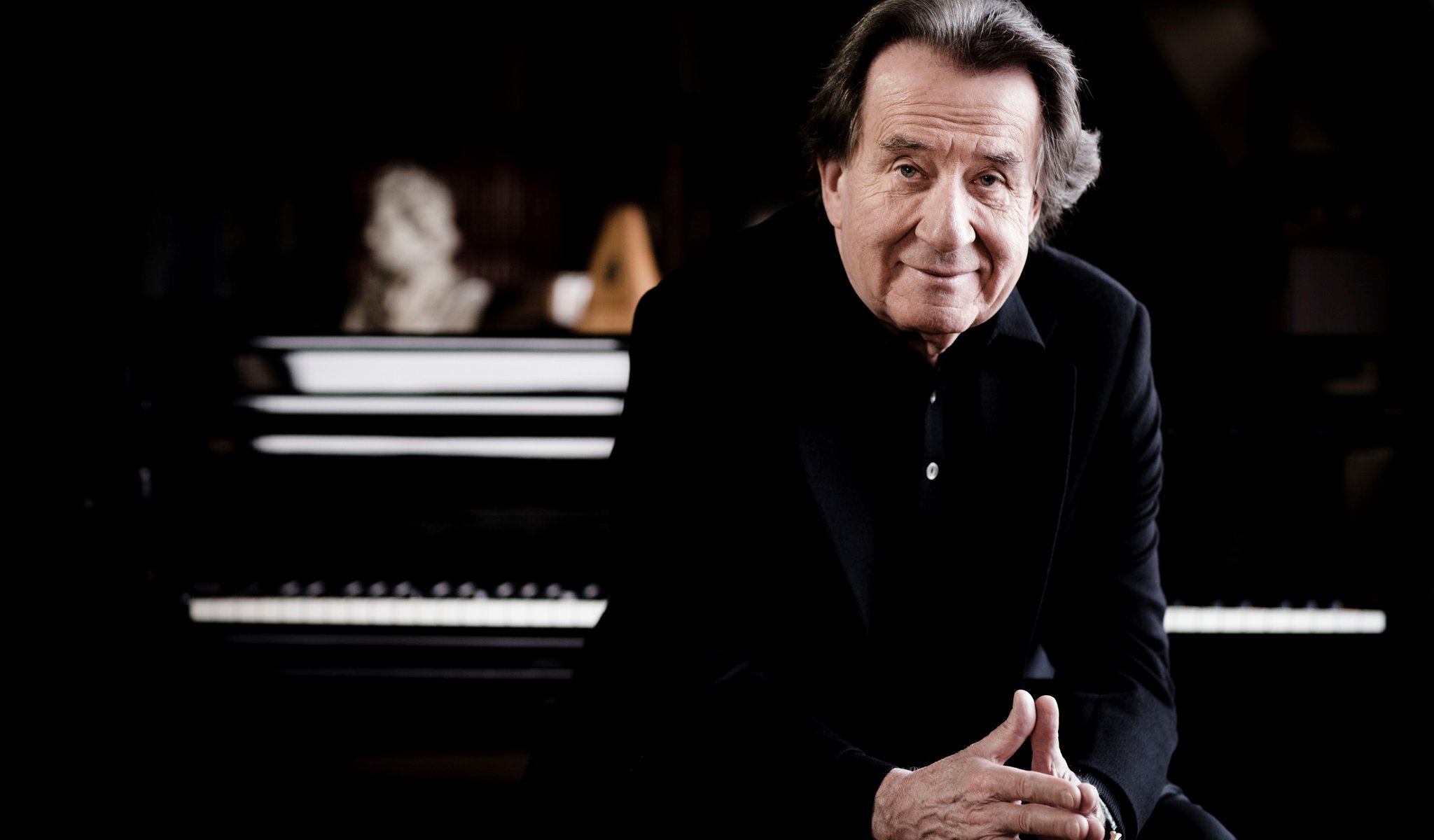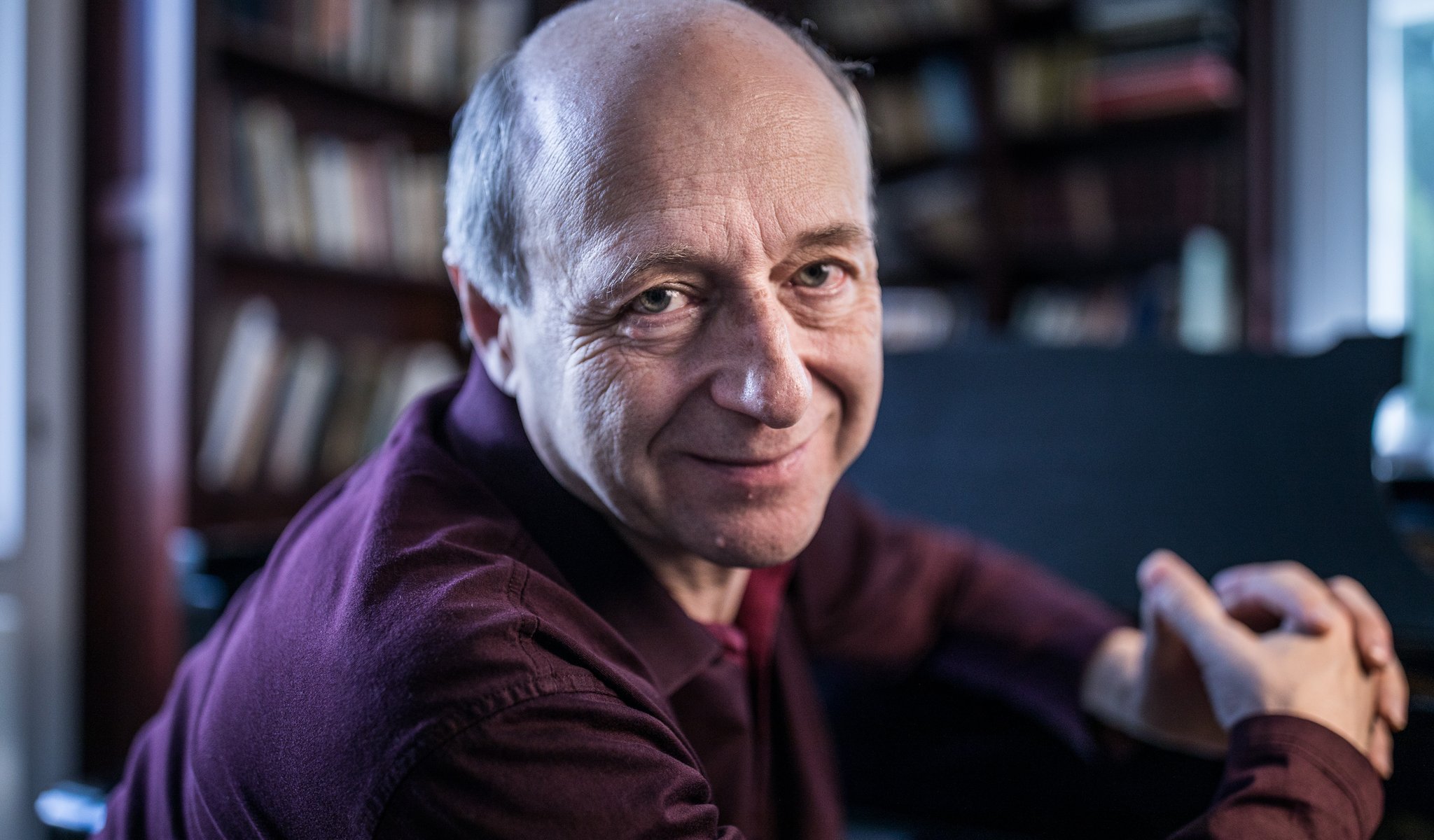

Orchestral concert: Dohnányi, Schumann, R. Strauss
Buchbinder, Fischer
Program
Featuring
Other information
The event is about 2.5 hours long.
About the event
Symphonic Minutes, then “something between a symphony, a concerto and a large sonata,” a symphonic poem, an opera excerpt and “an old scoundrel’s tale – in rondo form.” Three composers with a fantastic gift for orchestration; untold yet audible stories and the endless mix of timbres in an orchestra – this is on offer at the joint concert by the BFO and the legendary Rudolf Buchbinder, an authority with sixty years’ experience. The pianist, known for his Beethoven performances, appears on the podium after Dohnányi’s Symphonic Minutes (composed with a ballet stage in mind) to perform Schumann’s only completed piano concerto. After the intermission, the focus is on Richard Strauss: the story of the famous womanizer is followed by Oscar Wilde’s seductive but terrifying heroine, then, eventually, Till Eulenspiegel provides edifying minutes with his musical pranks.
In 1933, to celebrate the 80th anniversary of the Orchestra of the Philharmonic Society, the great trio joined forces: One work each from Bartók, Kodály, and Dohnányi was on the program of the jubilee concert. Years later, Symphonic Minutes reached the stage of the Hungarian Royal Opera House with choreography by Dohnányi’s wife, Elza Galafrés. The five movements are the ethereal Capriccio, a somewhat dejected Rapsodia, a buoyant Scherzo, a movement of variations on a 16th century melody and a carefree Rondo.
In 1841, Schumann wrote a lyrical fantasy for piano and orchestra, to which he added two further movements four years later. The Piano Concerto in A minor was thus born. The composer broke with tradition and, instead of presenting a showy solo instrument, he made the piano an integral part of the orchestra. The beautiful musical dialogs of the opening movement, the extreme emotions of the Intermezzo, and the virtuosity of the vigorous Finale, bursting in attacca, have made the piece one of the most popular concertos.
A teasing, increasingly vehement musical theme for four French horns with lyrical melodies between the returns of the theme – anyone can guess without knowing the title: this is all about Don Juan’s conquests. Strauss did not permit the printing of a text next to his composition of 1888 since the story could clearly be followed in his music. A concise, impressive portrait, rich in tunes.
A seductive woman to replace the seductive man: young Salome, performing a thrilling dance in front of her stepfather, can ask for anything in return for dropping her seven veils. And she wants the head of John the Baptist on a silver platter. The wonderful last scene, preceding complete madness, is the best-known part of Strauss’ opera, premiered in 1905; its exotic music builds up gradually.
The last piece of the concert commemorates Till Eulenspiegel, a scoundrel from the world of German tales. The distinct adventures, presented in rondo form, are connected by two unmistakable Till motifs, playing even after the death of the protagonist, since “épater le bourgeois” is everlasting.
Did you know? Dohnányi's Symphonic Minutes were performed for the first time in Budapest on 23 October 1933, conducted by the composer, Schumann's Piano Concerto premiered on 4 December 1845 with Clara Schumann as soloist and Ferdinand Hiller conducting, Strauss's Don Juan was premiered in Weimar on 11 November 1889 (conducted by the composer), his opera Salome in Dresden on 9 December 1905 (conducted by Ernst von Schuch) and his tone poem Till Eulenspiegel in Cologne on 5 November 1895 (conducted by Franz Wüllner). Richard Goode, conductor: The Festival Orchestra last performed the Symphonic Minutes in Rome on 18 May 2013 (conductor: Iván Fischer), Schumann's Piano Concerto on 26 November 2012 (soloist: Richard Goode, conductor: Iván Fischer), Don Juan on 19 January 2019 (conductor: Michel Tabachnik), The Dance of the Seven Veils on 20 March 2007 (conductor: Iván Fischer), and Till Eulenspiegel on 4 May 2008 in Baden-Baden (conductor: Iván Fischer).
Contemporary events On 30 January 1933, Reich President Paul von Hindenburg appointed Adolf Hitler Chancellor of Germany / in 1933 Zsigmond Móricz's short story Eating until Being Full for Once was published / French painter Jean-Auguste-Dominique Ingres painted his portrait of Louise de Broglie, comtesse d’Haussonville, in 1845 / in 1845, the Danish philosopher Søren Kierkegaard's Stages on Life’s Way was published / Dutch painter Vincent van Gogh painted his Starry Night in 1889 / on 20 December 1889, Gustav Mahler's Symphony No. 1 was premiered in the Pesti Vigadó / in 1905 in Dresden, German expressionists formed the artist group Die Brücke / in 1905, a revolution broke out in St Petersburg, which was only pacified after a massacre and political concessions / the novel The Time Machine by English writer H. G. Wells was published in 1895 / the Austrian Josef Breuer and Sigmund Freud published their work Studies on Hysteria in 1895